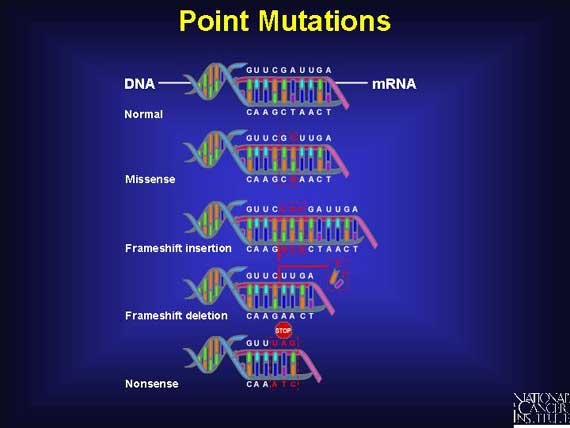|
Point mutations, single base changes in DNA sequences, are the most common type of alteration in DNA. They can have varying effects on the resulting protein.
A missense point mutation substitutes one nucleotide for a different one, but leaves the rest of the code intact. The impact of these point mutations depends on the specific amino acid that is changed and the protein sequence that results. If the change is critical to the protein's catalytic site or to its folding, damage may be severe.
Nonsense mutations are point mutations that change an amino acid codon to one of the three stop codons, which results in premature termination of the protein. Nonsense mutations may be caused by single base pair substitutions or by frameshift mutations.

< Previous | Index | Next Slide > |